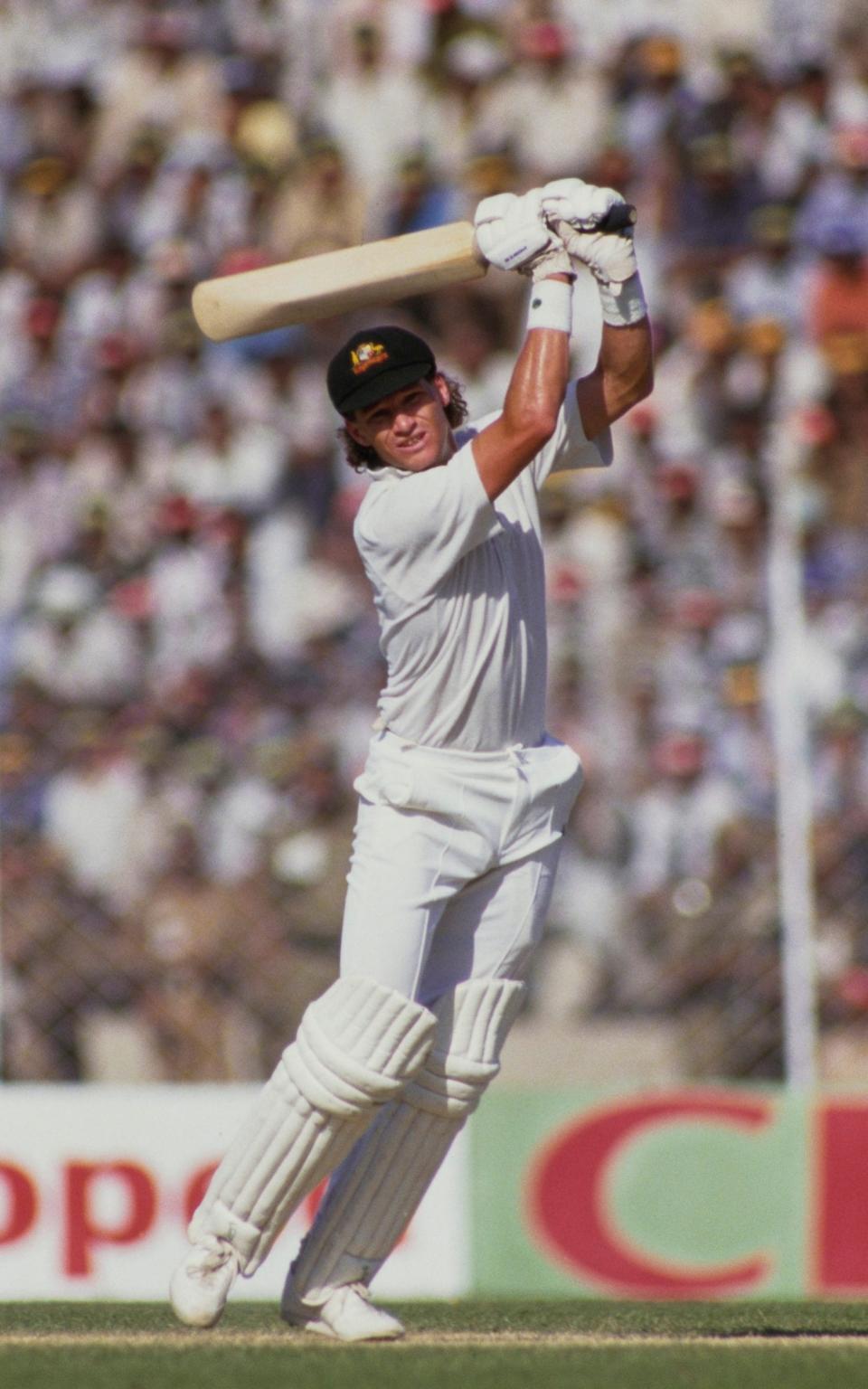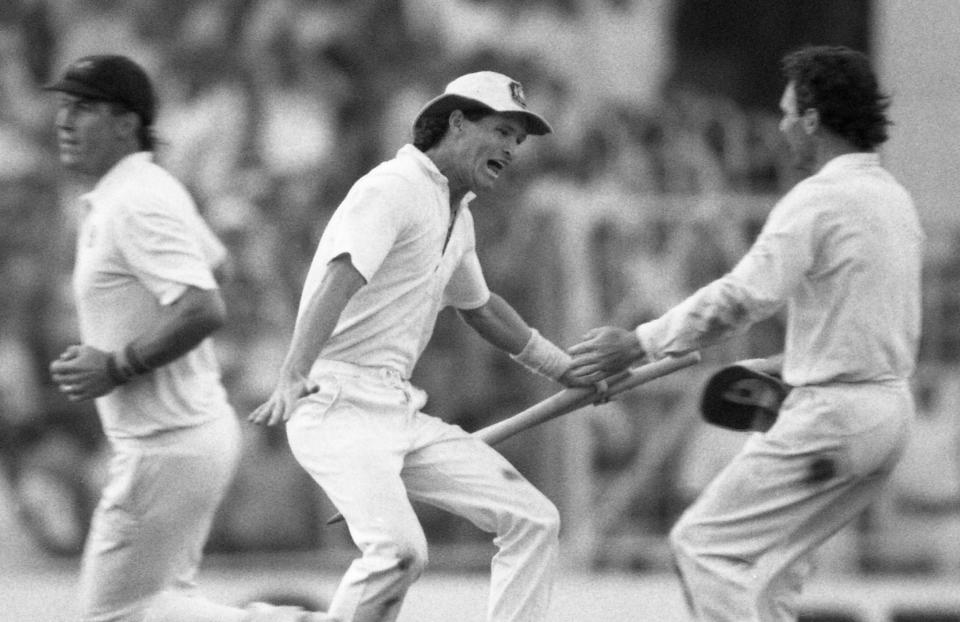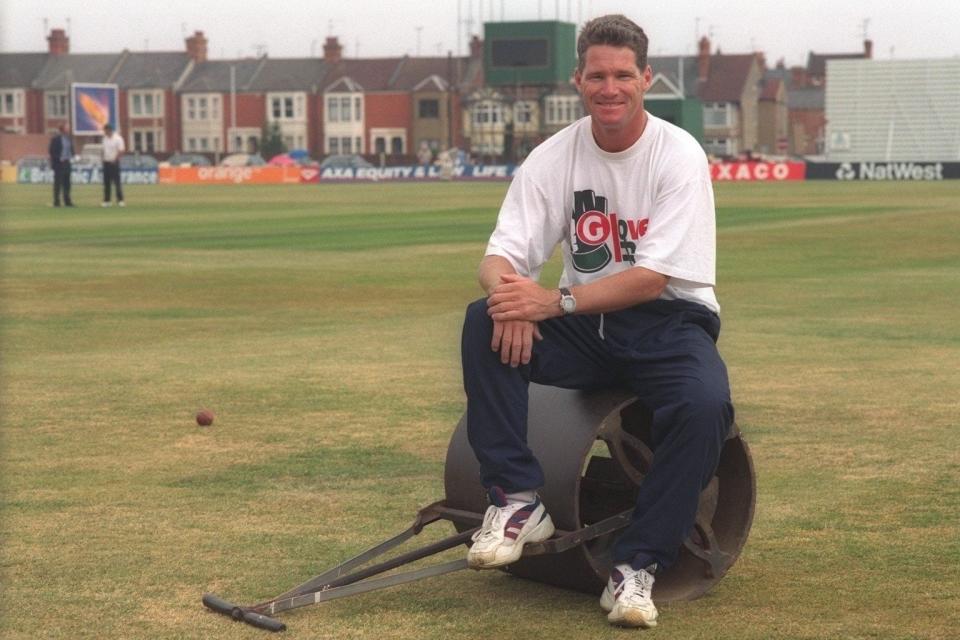Dean Jones, cricketer who played a key role in Australia’s rise to global dominance – obituary

Dean Jones, who has died after suffering a cardiac arrest aged 59, was an attack-minded, expansive batsman who played a significant part in enabling Australia’s cricket team to become the best in the world in the 1990s; competition for middle order places was such, however, that he was harshly dropped when still scoring runs consistently in both Test matches and the one-day game. He never entirely overcame his disappointment.
Jones was only 31 when he was discarded by Australia as a Test cricketer in 1992, having scored 3,631 runs in 52 matches at a highly respectable average of 46.55. The decision was all the more surprising in that his captain, Allan Border, had had a high regard for him ever since they had batted together in searing heat against India in Madras six years earlier.
Jones had wanted to leave the field as a result of suffering from dehydration, sickness and being unable to prevent himself from urinating. Health and safety regulations are such nowadays that he would not have been allowed to continue batting. Yet Border, who was fed up with Australia’s lack of success earlier in the 1980s, not least against England, goaded him into staying at the crease.

“If you can’t, we’ll have to send for a Queenslander,” he told him, in reference to his own state (Greg Ritchie, also from there, was the next man in). Jones, a Melburnian, said something unprintable in response, stayed put, and made 210.
The match finished in only the second tie in Test cricket history and Jones’s position in the batting order appeared to be secure. He was praised by Bobby Simpson, the Australian coach, as being “probably the most gifted batsman in Australia”. Wisden wrote of his double century, one of two he achieved at the highest level, as “courageous to the point of foolhardiness. It suggested great things would follow.” They did – against England.
Dean Mervyn Jones was born on March 24 1961 at Coburg in Melbourne. His early club cricket was played for Carlton, overseen by his father, Barney, and Keith Stackpole, an Australian opening batsman with an uncompromising attitude. It was not an upbringing in which Jones received much praise: when he made a half-century in one of his first matches for Victoria, his captain, Graham Yallop, described it as one of the worst he had seen in first-class cricket.

Jones had the extroverted character to be able to cope. He made his Test debut in 1984, scoring 48 against a strong West Indies side, and played some of his finest innings against England. In the final Test on their 1986-87 tour he made an unbeaten 184. Then in England in 1989, when Australia regained the Ashes, he struck two further centuries, averaging 70.75. A highly aggressive 145 followed a year later in a one-day match in Brisbane.
Unexpectedly for a batsman who could bring off an array of improvised shots, he had turned for advice to Geoffrey Boycott, the obdurate Yorkshireman, who helped him to adapt his excitable temperament to Test cricket and to batting on pitches in England.
Jones had learnt enough not to become complacent. “Cricket can be an ugly game,” he said. “Just when you think you might have established yourself, it will turn around and bite you again.” Eventually it did.

Jones, who had been in Australia’s World Cup-winning team in 1987, was highly aggrieved when he was dropped from their one-day side in 1994, having made 6,068 runs in 164 internationals. His batting – he often eschewed a helmet in favour of a floppy sun hat – gum-chewing and face cream brought him many supporters all over the world, particularly in India.
The converse side of his aggression was that he could upset team-mates – as when he captained Derbyshire in the mid-1990s following a spell with Durham – and some opponents. He once complained to Curtly Ambrose, the West Indian fast bowler, that his white sweatbands were affecting sighting the white ball. Ambrose’s response was to bowl faster and even more effectively.
Chris Adams, the England batsman who admired Jones and played under him for Derbyshire, said: “Dean’s philosophy was the creed by which he lived his life. Play hard, leave nothing on the pitch and be brutally honest, both with yourself and your team-mates. He was constantly challenging individuals.”
In retirement Jones worked as a coach and as a commentator for television stations. He thought he was off-air in Colombo in 2007 when he described the appearance of Hashim Amla, a devout Muslim, as “a terrorist”. He apologised but was sacked by Ten Sports.
Nevertheless, his forthright opinions continued to be in demand, and he was in Mumbai for commentary work on the Indian Premier League when he collapsed of a heart attack in a hotel lobby. Brett Lee, the former Australian fast bowler, was unable to revive him.
Jones is survived by his wife, Jane, whom he married in 1986, by their two daughters, and by a son from a relationship with Kerri-Anne Hamilton.
Dean Jones, born March 24 1961, died September 24 2020


